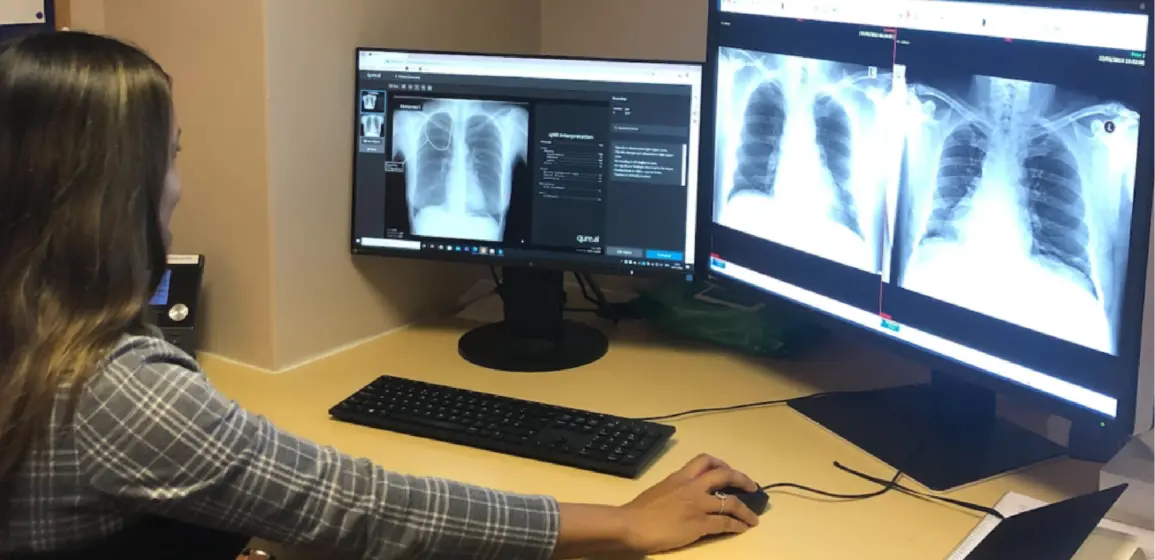Introduction

Back
The increase in complexities of diseases has led to radiologists reporting increasing numbers of different imaging modalities, as well as undertaking specialist clinics, ultrasound lists, and interventional procedures which are highly complex. The increasing reporting workload has not seen the correlating increase in number of Radiologists to ensure timely and accurate reporting of all the imaging modalities. Latest guidance indicates that the NHS radiologist workforce is now short-staffed by 33% and by 2025 the UK’s radiologist shortfall will reach 44% (RCR, 2021).
AI technology has the potential to integrate into the clinical pathway and help Radiologists with the ever-increasing backlog of reporting.
Frimley Health NHS Foundation Trust
Frimley Health NHS Foundation Trust consist of 3 hospitals, Wexham Park, Heatherwood and Frimley Park and serves up to 1.3 million residents, and is a well performing trust in radiology turnaround time, to stay on top of timely chest radiograph reporting. Frimley Health has invested itself to adopt AI solutions to assist the Trust to improve workflow efficiency and support clinicians, and ultimately patients. Dr Amrita Kumar, Consultant Radiologist and AI Lead for Frimley Health will be leading a 6-month pilot with Qure.ai in using qXR to support the timely reporting of chest radiographs in the GP and outpatient setting.
6 Month Service Evaluation using qXR
Chest X-ray is often first line imaging for symptoms relating to lung cancer, due to X-rays being readily available, low cost, fast acquisition time and supports initial diagnosis prior to further imaging.
This evaluation will test the accuracy of qXR in classifying an unremarkable chest X-ray from one with findings in a clinical setting. The Qure’s PACS viewer application will be actively used for the first time in the UK in the initial phase, to ensure the readers are blinded to the AI results. The outcomes will be assessed to demonstrate the capability of qXR in identifying unremarkable scans with a high negative predictive value.
Phase 2 will consist of qXR integration with the hospital system information system EPIC, which will allow a seamless experience to all users. AI findings will be viewed alongside the original X-ray, data will be collected throughout the study in understanding the value of AI in reducing report turnaround time and workflow efficiency.